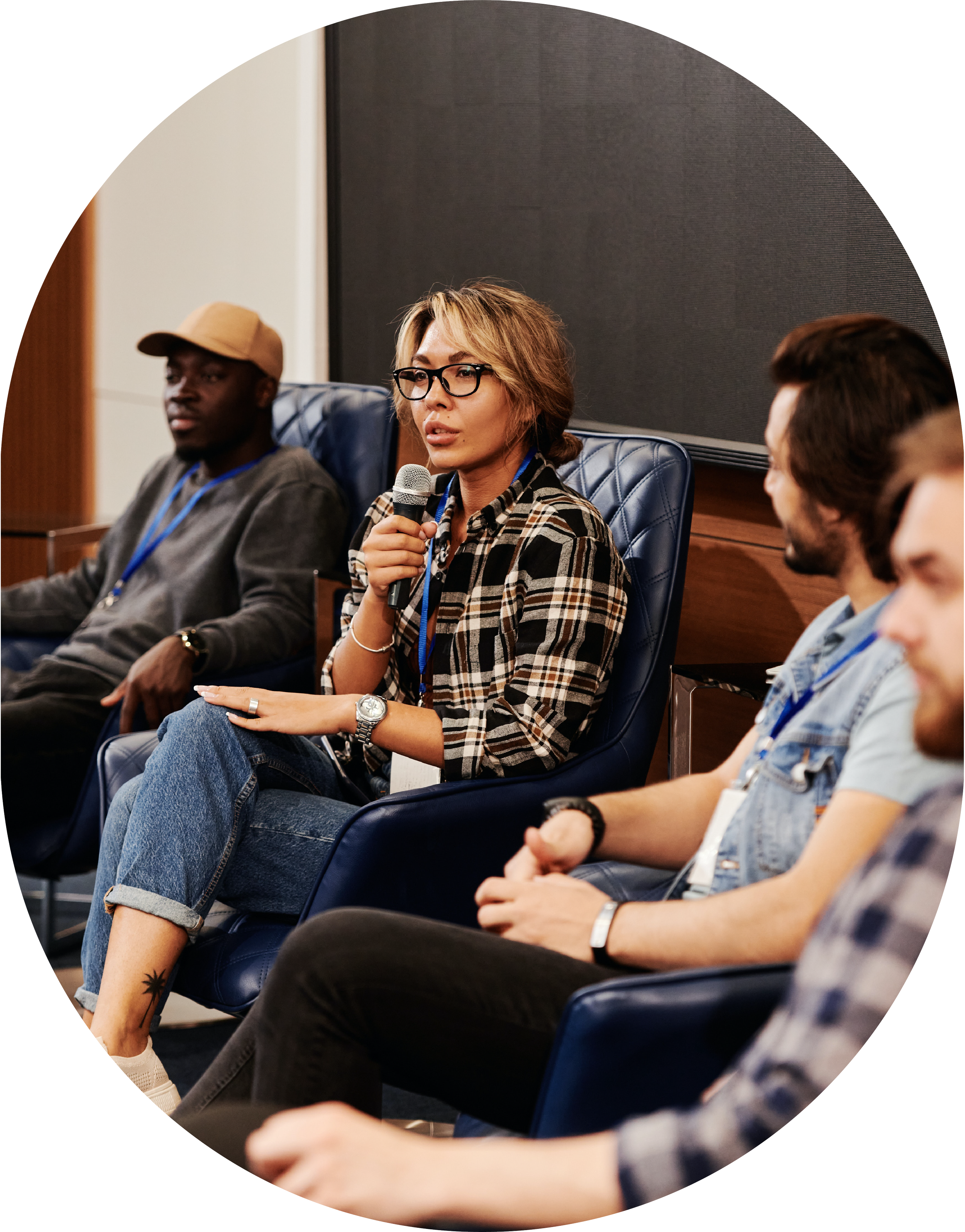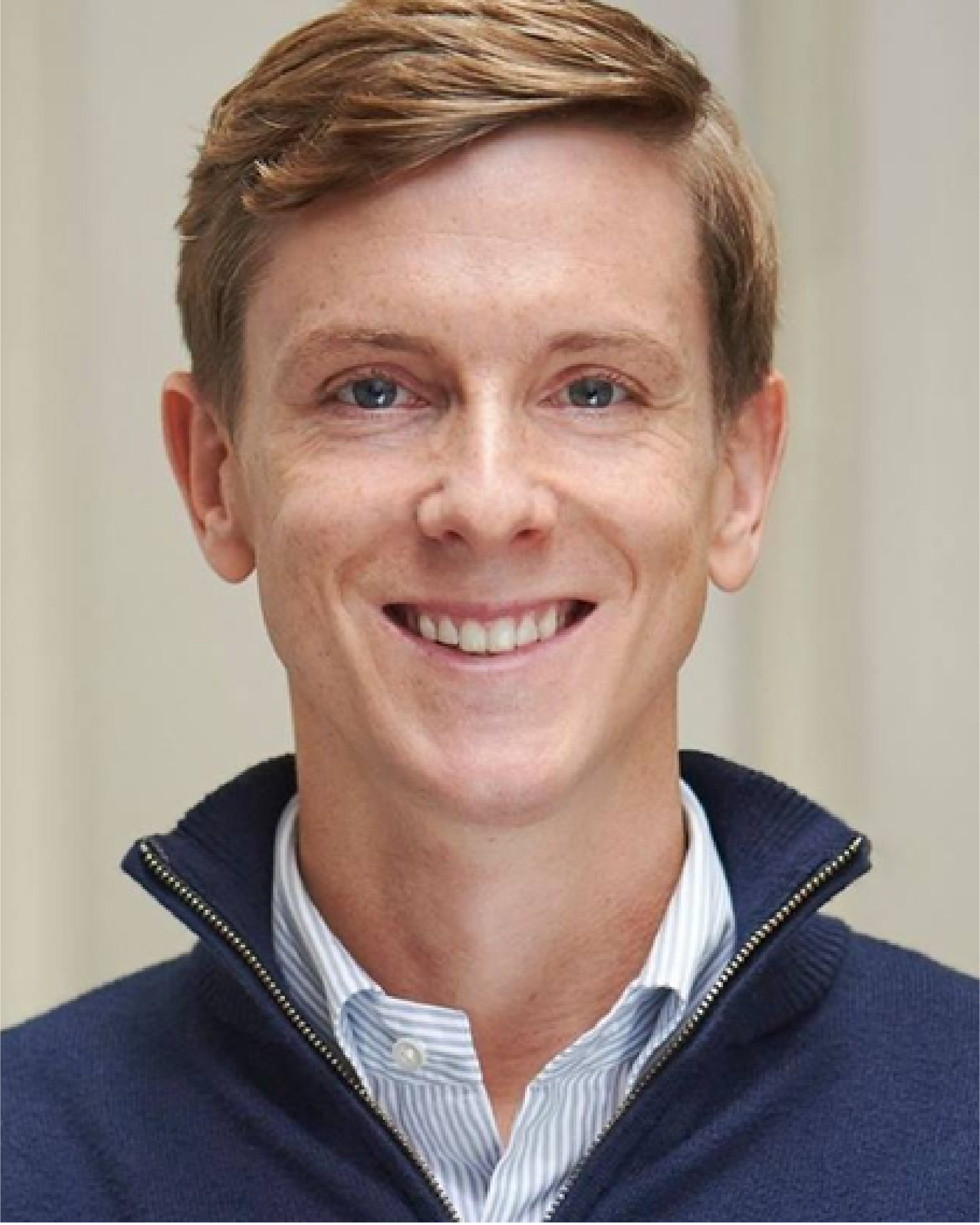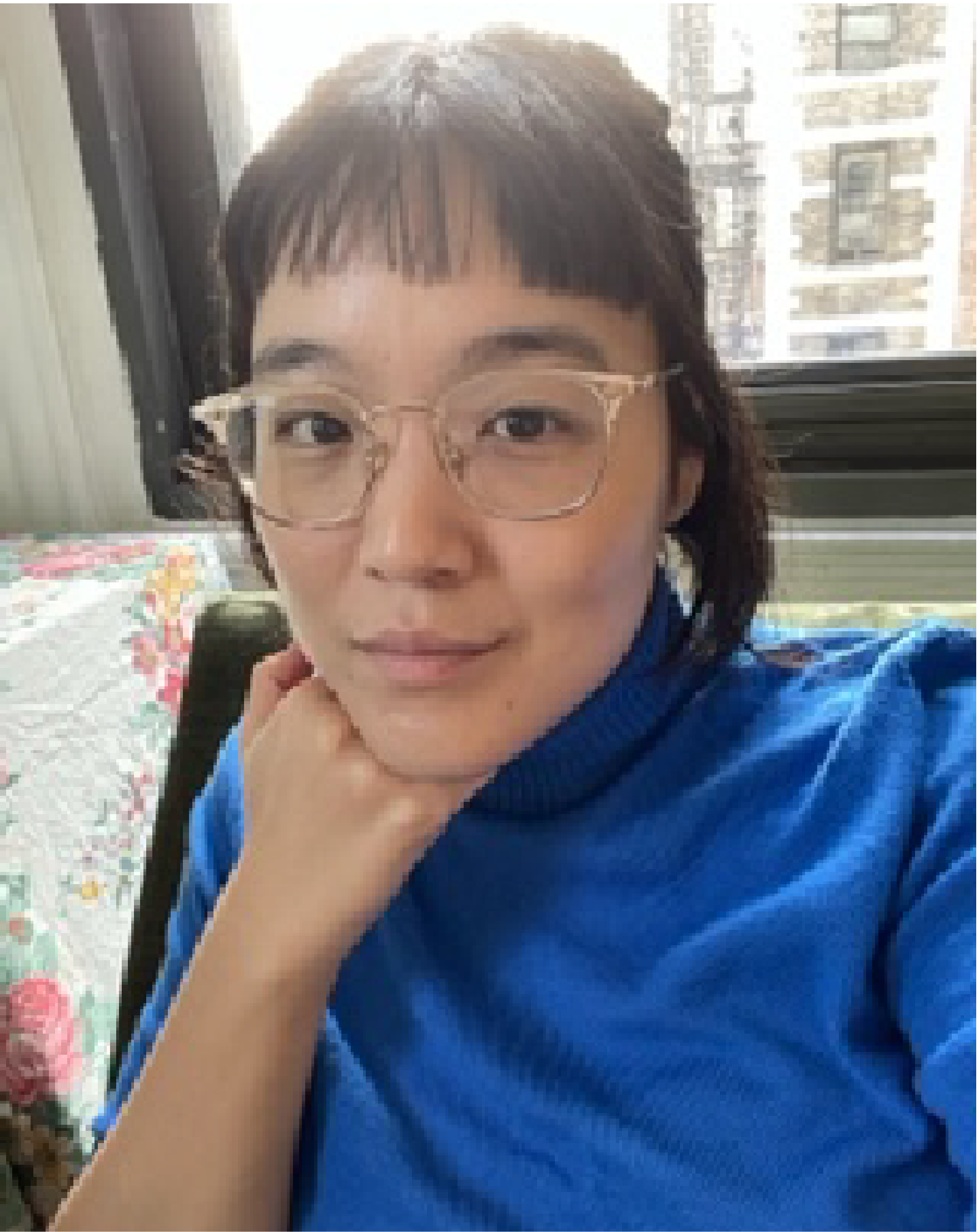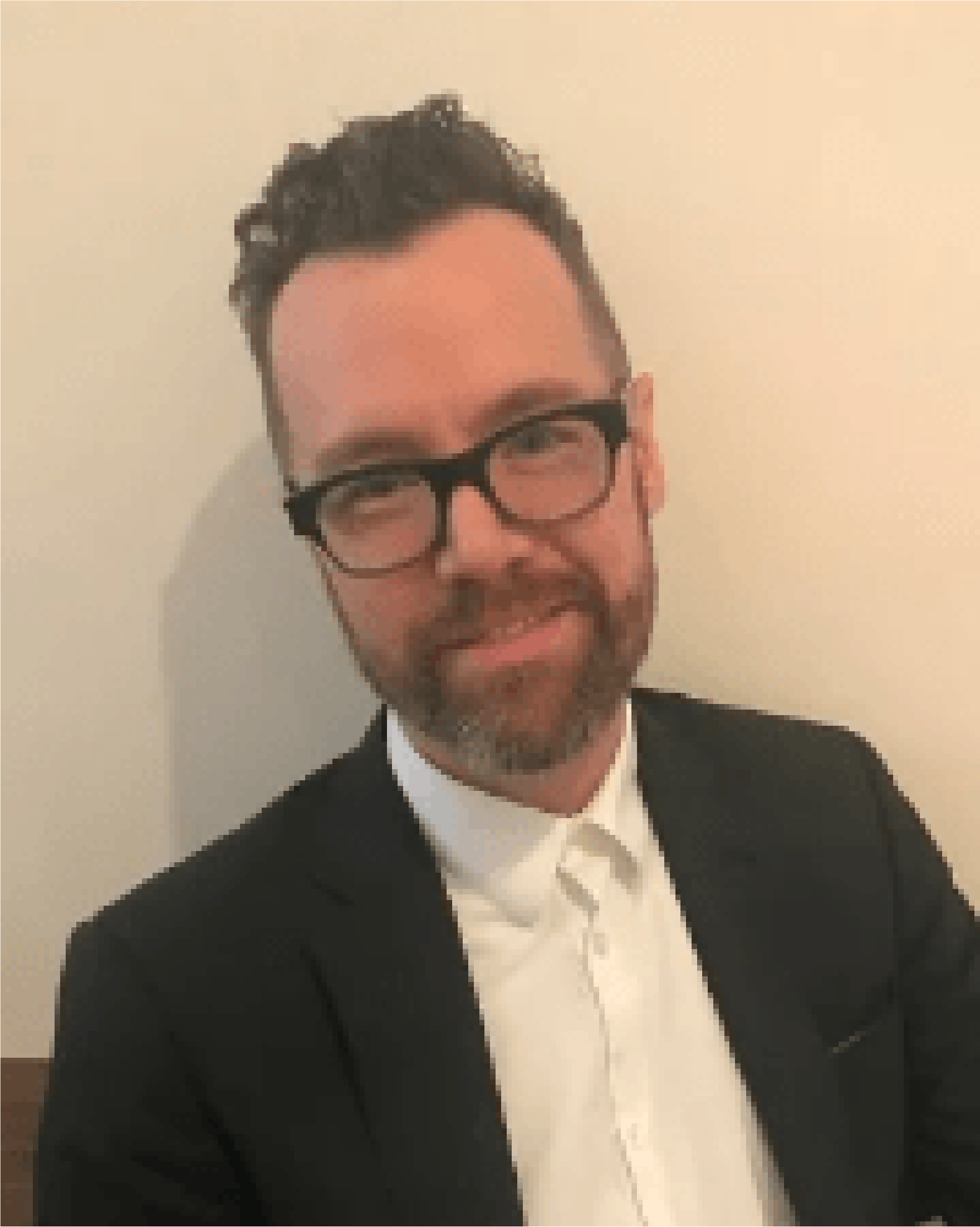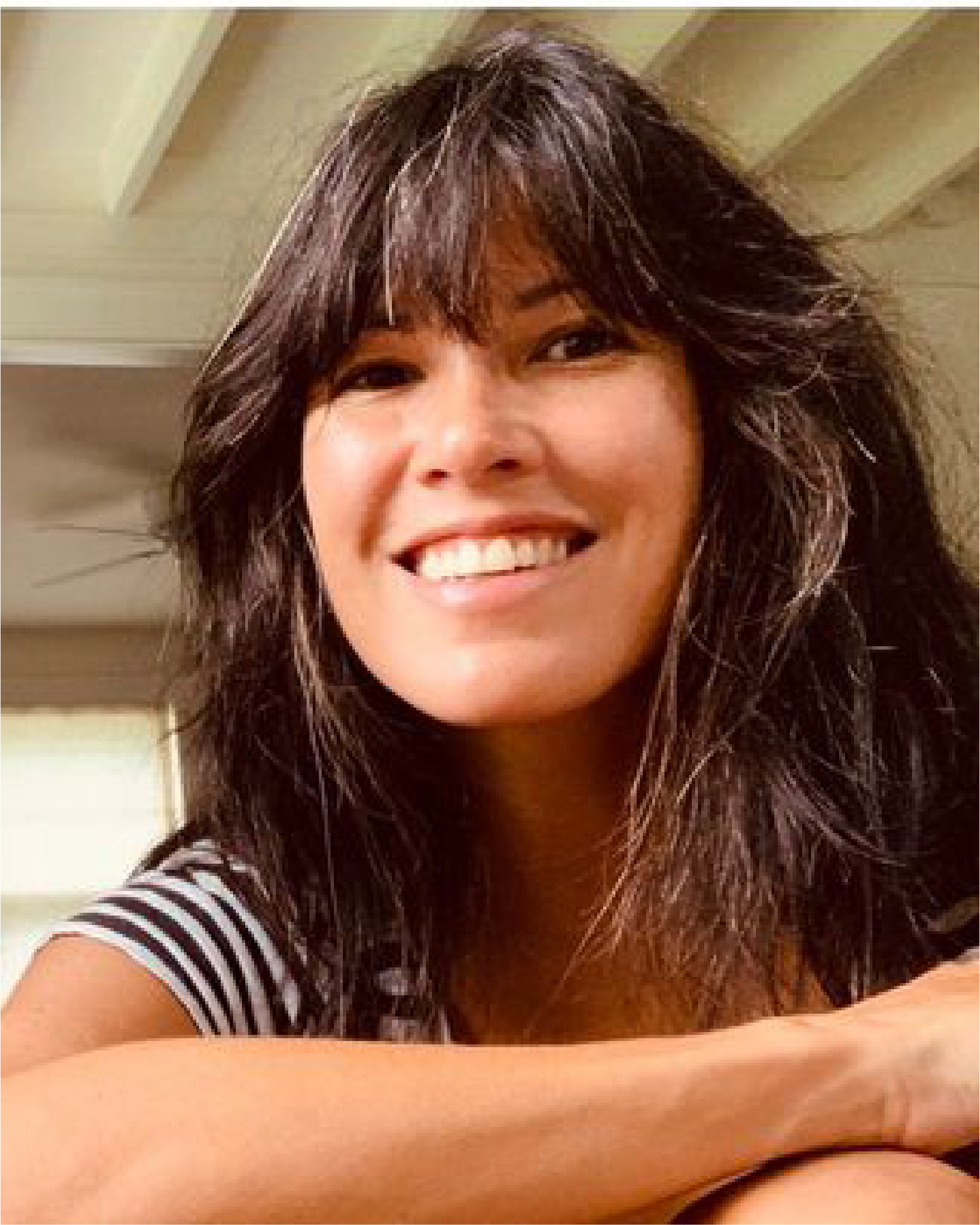Therapy should be accessible and transformative.We are building a community of practice for therapists, patients, activists, and theorists to develop and apply insights around community psychoanalysis.
We believe depth-oriented psychotherapy provides liberatory benefits to people experiencing mental or emotional challenges
Support Low-Cost Treatment
We help analysts from marginalized communities offer low-cost treatment in the neighborhoods where patients live and work.
Connect to Therapists
We connect individuals who have historically been marginalized from the benefits of psychoanalysis to low-cost, high-quality therapists.
Grow Community
We aim to grow the community of individuals and institutions exploring what community psychoanalysis is and how it can be ethically and effectively practiced.
We hope our programs can illustrate the transformative power of analytic therapies to help people live more balanced, autonomous lives.
While we are not a therapy practice, we support therapists and individuals seeking therapy.
Our Values
-
Our work is based in a long tradition of psychoanalytic therapy, which research shows can have long-lasting and transformative effects.
-
We work with patience, empathy, and curiosity. This is founded in a deep and abiding commitment to listening to the individuals and communities that we serve.
-
We are committed to recognizing that no person, institution, or practice is perfect, and we endeavor to apply insights from the mistakes of the past to improve our work today.
Our Team
Fellowship for Emerging Psychoanalysts - Inaugural Cohort
-
With over two decades of experience in HIV medicine and community health in New York City, Christina has dedicated her career to serving the needs of diverse individuals and communities.
Through working at community-focused organizations like Housing Works, The Floating Hospital, and Harlem United, Christina experienced firsthand the intersection of mental and physical health, as well as community engagement through individual care. Drawing from this background, Christina transitioned into psychoanalysis where she integrates a deep understanding of the human experience, trauma, and resilience as it articulates within each individual.
Christina completed her 4-year psychoanalytical training at the Institute for Contemporary Psychotherapy. She continues to work in HIV research at Weill Cornell Medical College and has a private psychotherapy practice. She is happy to continue her focus on working within communities as a fellow at the Foundation for Community Psychoanalysis.
-
Dr. Jose Sanchez-Cruz served in the US Navy for 8 years. Following his service, he earned a B.S. from the University of California, San Diego in Microbiology with a minor in Film Studies. He earned his M.D. from the University of California, Los Angeles and was inducted into the Gold Humanism Honor Society. During medical school, Dr. Sanchez-Cruz conducted research to assess structural determinants of health in homeless individuals in Los Angeles.
He volunteered his time as a peer counselor in a program to address depression in undergraduate and graduate students, facilitated veteran health panels, organized community health fairs and fundraisers with the Latino Medical Student Association, and worked as an ally to provide training to health workers serving the LGBTQ community.
Dr. Sanchez-Cruz completed his residency training in Adult Psychiatry at NYU Grossman SoM, where he served as Chief Resident. While in residency, he started the Psychiatry in Film initiative. He was an active member of NYU's House Staff Patient Safety Council, House Staff Diversity and Inclusion Committee, and the Physician Well-Being Committee. He completed training in Transference-Focused Psychotherapy and is a psychoanalytic candidate at Columbia University.
Dr. Sanchez-Cruz is in private practice in NY and NJ where he provides medical management and psychoanalytic informed psychotherapy to diverse populations across cultures, socio-economic status, race, gender, and mental health ailments.
-
Lanaya Wade, PsyD, is a Licensed Psychologist in New York. She spends the majority of her professional time in private practice, where she works with adults focused on depth therapy and with adults and children completing psychological assessment.
Dr. Wade also enjoys her role as an educator and providing support for future clinicians. She is currently a Candidate at New York University’s Postdoctoral Program in Psychotherapy & Psychoanalysis. Her training includes a Postdoctoral Fellowship and Internship at the William Alanson White Institute and education at the Oregon Psychoanalytic Center.
Dr. Wade intends to use the fellowship to significantly increase the amount of clients she is seeing on a low-fee basis, continue to deepen her understanding of Relational Analytic thought, and, ultimately, contribute new understandings to the knowledge base regarding Community Psychoanalysis in marginalized communities based on her experiences at the FCP.
Community Psychoanalysis Grant Recipients
-
Gabrielle Jensen is a psychotherapist working with children, adolescents, and adults in New York, where she is also a psychoanalytic candidate at the Pulsion Institute for Psychoanalysis.
She directs the child and adolescent psychotherapy program at Rose Hill Psychological Services, a psychoanalytic group practice with offices in Manhattan and the Bronx. After a previous career as a writer and curator of visual art, Gabrielle earned her MSW at Hunter College, where she also completed a specialized program in child trauma.
Gabrielle researches links between the climate crisis and somatic clinical presentations, especially in young people and children.
With the Foundation for Community Psychoanalysis, Gabrielle is developing a free drop-in center for children ages 0-4 and their caregivers, including expectant parents. This environment is neither a clinic, school, or nursery, but is a place to be welcomed and heard in a psychoanalytic manner. Designed to gently assist in the socialization of children before they go to school and to strengthen the bond between caregivers and children, the center will be modeled after the Maison Verte in Paris, which was originally conceptualized by French psychoanalyst Françoise Dolto. There are over 2,000 such centers around France and other parts of the world, but this project will be the first of its kind in the United States.
-
The Greene Clinic Speaker Series on Community Psychoanalysis, a program of talks on psychoanalysis and politics that are open to the public, has consisted of the following speakers for the past three years: Jared Sexton, Avgi Saketopoulou and Ann Pellegrini, Jess Ghannam, Elena Vogman and Chris Chamberlin, David Eng, Francisco González, Fred Moten, Daniel Tutt, Gabriel Tupinambá, Derek Hook, George Bermudez, Kristen Hennessy, Patricia Gherovici, M.E. O'Brien and Sophie Lewis, Sheldon George, Todd McGowan, Ian Parker, Daniel José Gaztambide Nuñez, Orna Ophir, Brett Kahr, Lara and Stephen Sheehi, Camille Robcis, and Elizabeth Danto.
The co-sponsorship of the series with the Foundation for Community Psychoanalysis consists of some changes in the format and funding of this series—specifically, this involves two separate but loosely linked series advertised in connection to the Foundation for Community Psychoanalysis.
The Community Psychoanalysis Speaker Series has transitioned from an all virtual presentation to all events offered live at the Foundation space (81 Court St) in Brooklyn with an adjusted format of the talks.
Previously, speakers have presented papers or thoughts for about 45 to 60 minutes, followed by 30 minutes of discussion, with very limited moderation. The series has been adapted to having one board member (or member of the Greene Clinic community) be the point person for each speaker to make the initial connection, engage in some research on the speaker's work, and serve as moderator for the talk. This extends the talks from 1.5 to 2 hours, with a 45 to 60-minute presentation, 30 to 45 minutes of conversation between the speaker and moderator, and 30 minutes of full group discussion.
The following talks for both series are being supported and advertised at the moment, with more talk titles and information to come: Alberto Toscano's The Nero Complex: Colonial Presents, Fascist Futures; Kevin Duong's Psychiatry for Internal Colonialism: Harlem’s Lafargue Clinic, 1946-1958; Sasha Warren's Belacqua-Syndrome: the Political Economy of Psychiatry; Elan Cohen's Psychoanalytic Perspectives on the Repetition of Trauma in Psychiatric Services; Danielle Knafo's From Breakthrough: Psychoanalytic Treatment of Psychosis; and Deborah Anna Luepnitz's Insight For All: Psychoanalysis and the Experience of Homelessness.
Lastly, the events for the Community Psychoanalysis Speaker Series and Psychosis in the City will be offered for free. In addition, video recordings will be made available by the Greene Clinic for purchase for CE credits for psychologists, social workers, psychoanalysts and counselors.
-
Mae Monga is a cultural organizer, artist, and founder of Divine Times Collective, dedicated to creating transformative spaces for black individuals across the African diaspora. Mae’s work is rooted in inner-child healing, community storytelling, and cultural reconnection, blending research and art to foster liberation and joy. Through events and partnerships with local and global organizations, Mae cultivates spaces that honor ancestral wisdom while addressing contemporary challenges.
Mae’s latest project is a multi-layered initiative exploring inner-child healing through a psychoanalysis-informed lens, integrating insights from therapists and social workers. The project examines the underutilization of mental health resources by immigrant and displaced Black communities. It includes a magazine featuring research, artist submissions, and reflections; a film screening and panel discussion on racial trauma and healing; and the Pan-Afro Wisdom Fest (P.O.W. Fest), an outdoor celebration of diasporic traditions through music, dance, and interactive workshops. By centering African diasporic narratives and prioritizing holistic healing, Mae envisions culture as a bridge to self-discovery, connection, and collective transformation.
-
Christopher Landry is a psychiatrist and a psychoanalytic candidate at Columbia University. He is the Associate Medical Director at Fountain House, a therapeutic community supporting recovery for people with Serious Mental Illness, and co-founder of the Constellation Program, a psychoanalytically-informed treatment program for young adults experiencing psychosis and extreme states.
With the Foundation for Community Psychoanalysis Chris is working on three interrelated endeavors. The Foundation supports the Constellation Program as a space for 1:1 therapy as well as group work facilitated by Isaiah Madison. Chris also organizes the Working Group for Community Mental Health Workers and he leads the speaker series Psychosis in the City, produced in collaboration with the Greene Clinic Speaker Series, hosted at the Foundation space.
-
Marina Weiss, PhD, MFA is a clinical psychologist. In her clinical work, she uses relational, interpersonal psychodynamic and integrative approaches, and specializes in supporting recovery from trauma, particularly the recovery of emerging adults at the intersections of acculturative and traumatic stressors. Marina is a postdoctoral fellow, supervisor and therapist in the Brooklyn College Counseling Center, where she is also a clinical instructor in the Mental Health Counseling Masters program. Her research describes and addresses mental health disparities in trauma-exposed populations, specifically through community-based, participatory research (CBPR) methods and the design, implementation, and evaluation of community-centered interventions.
From 2022-2024, Marina served as a postdoctoral fellow in implementation science in the Center for Innovation in Mental Health at the CUNY Graduate School of Public Health and Health Policy. In this role, Marina co-led design, implementation, and evaluation of three community mental health programs using task-sharing to increase access to mental healthcare for low-income New Yorkers in partnerships with community, city, and federal agencies. Marina was instrumental in establishing trauma-informed, culturally attuned practices in this role. Marina also has extensive experience with intervention design for and clinical research with Spanish- and English-speaking survivors of intimate partner violence and sex trafficking, including coordinating clinical care, program evaluation, and expansion of a pilot psychiatric care model within the NYC Family Justice Center system from 2014-2017, as well as developing community-based, participatory programming with and for this population as part of the Economic and Social Empowerment project at NYU’s Silver School of Social Work in 2013, and within a collaboration between the Bronx Family Justice Center, the Columbia University Presidential Scholars Program and the Columbia University Irving Medical Center (CUIMC) Department of Narrative Medicine from 2019-2021.
Marina earned her M.A. and Ph.D. in clinical psychology from Adelphi University, and completed her internship at CUIMC/New York Presbyterian Hospital. She completed her clinical training in English and Spanish, and was certified as a bilingual clinical provider by CUIMC, and has also served as an anti-racist educator for mental health professionals throughout her doctoral training.
With the Foundation for Community Psychoanalysis, and in partnership with the Brooklyn College Immigrant Student Success Office, Marina is co-developing a bilingual Spanish- and English-based arts therapy group intervention for acculturating emerging adults in collaboration with the group’s participants. This community-based, participatory program will respond to calls for therapies designed by and for Latine American emerging adults, as well as for therapies using culturally congruent methods such as cuento, or storytelling. This group arts-based intervention, supplemented by individual psychotherapy, will support young adults’ framing of themselves as agents and creators; reduce the stigma of psychotherapy in the eyes of their peers, families, and communities; and reinforce participants’ ego strengths, insight, relational skills, social support, and belonging.
-
The Foundation for Community Psychoanalysis is excited to partner with Harlem Family Services to launch The Happiness Project, an innovative program designed to expand access to mental health care for historically marginalized communities. With support from a $10,000 grant, this 8-week initiative will provide psychoanalytic workshops, group therapy sessions, and creative arts programming to help participants explore emotional well-being, build resilience, and foster deeper connections. The project also aims to address systemic barriers to mental health care by empowering early-career clinicians with hands-on training and creating meaningful collaborations with local organizations.
Together, the Foundation for Community Psychoanalysis and Harlem Family Services are working to reimagine mental health care as a vital, accessible resource for all while strengthening the bonds of community and collective healing.
-
With the Foundation for Community Psychoanalysis Vaia Tsolas and Charlotte Mazel-Cabasse are launching the Rose Hill Psychoanalytic Pain Center, a unique psychoanalytically oriented project in the Bronx, explicitly targeting the treatment of pain (adults, adolescents, and children).
As the number of drug-addicted and chronic pain patients skyrockets astronomically nationwide in the post-COVID-19 era, this epidemic afflicts more and more communities in NYC. The community psychoanalytic/psychosomatic approach aims to help patients reclaim a sense of self, articulate a narrative of their deepest existential anxieties associated with chronic pain and progressively begin to reduce addictive and disabling pain medication, regain their humanity and desire for living, and begin to re-invest in their lives, relationships and histories.
-
Michael Ferrara, PhD, is a clinical psychologist working with children, adolescents and adults as well as a postdoctoral fellow at the group practice Soho Psychoanalytic. In his clinical work, he uses a psychodynamic approach and applies a developmental perspective to patients across the lifespan, using D.W. Winnicott, Erik Erikson and Freud as theoretical guideposts to his clinical technique. Michael researches and writes about the dynamics of termination and the applications of play therapy to the treatment with adults and adolescents.
With the Foundation for Community Psychoanalysis, Michael is developing relationships with local high schools in the downtown Brooklyn area to expand access to psychoanalytic psychotherapy for teens. By creating and distributing materials aimed at both parents and adolescents, and facilitating referrals between struggling students and psychoanalytic clinicians, this program can help address the adolescent mental health crisis.
-
The Action Lab is a strategy center for social movements that sparks political and personal liberation. We provide rigorous and joyful spaces for organizers, leaders, and artists to learn, to create, and to strengthen our capacity to win. We strive to build a powerful culture that lifts us out of the immediate and enables us to envision and realize a just future.
The Art of Purpose, The Action Lab’s four-month fellowship program that is offered twice a year, blends somatics and political analysis to help organizers navigate the intersections of fighting for justice and personal healing and to organize their attention and relationships for collective action. Through retreats, political education convenings, practice circles, and one on one coaching, fellows develop leadership skills, deepen community connections, and cultivate a culture of trust, mutual accountability, and principled engagement. The program equips participants with the tools to organize more deeply and effectively, fostering a movement that is both strategic and meaningful.
We are excited to partner with the Foundation for Community Psychoanalysis to deepen the integration of psychoanalytic and somatic practices within our movement-building work. FCP is generously providing access to their Downtown Brooklyn space for Practice Circles and trainings. We plan to bridge our communities of learning and experimentation through engaging FCP's psychoanalysts in Art of Purpose's curriculum on somatics and dialectics, and to our trainings, and practitioners. This partnership will enhance the capacity of our Fellows to navigate the contradictory intersection of organizing, healing, and political action—offering sustained, nuanced approaches to movement work, especially in times of crisis. We also hope to enhance the work of psychoanalysts through the dialogue and interplay of these adjacent, sometimes overlapping and sometimes contradictory, modes of healing, action and inquiry.
Staff
-
Jamie began her nonprofit career over a decade ago, working in volunteer management for the AIDS Walk in New York and Los Angeles. Since then, she has developed and implemented programming for various social impact organizations, including her most recent roles at the Good+ Foundation, which aims to break the cycle of poverty by providing essential items to families in need, and iMentor, which supports high school students through college and career via mentorship.
Jamie holds a B.A. in Psychology from the University of Connecticut and an M.A. in Educational Leadership, Advocacy, & Politics from NYU. She also serves on the Board of Directors for First Tech Fund, a nonprofit dedicated to empowering the next generation of leaders.
Jamie lives in Brooklyn, New York, with her husband and their dog.
MANAGING DIRECTOR
Board of Directors
-
Chris Hughes is the Co-Founder and Chair of the Economic Security Project and a Senior Fellow at the Institute on Race, Power, and Political Economy at The New School. His research and writing focuses on the history of central banking, economic policymaking and the administrative state, antitrust policy, and guaranteed income studies. Hughes is currently writing a book chronicling the history of the economic policy of the American administrative state. He is enrolled in the PhD program of the Wharton School at the University of Pennsylvania. His first book, Fair Shot: Rethinking Inequality and How We Earn, was published by St Martin’s Press in 2018.
Hughes has a masters in Economics from The New School of Social Research and graduated from Harvard magna cum laude with a bachelors in History and Literature. He was a co-founder of Facebook. A former member of the Council on Foreign Relations, Hughes now serves on the boards of the New York Public Library, the Chamber Music Society of Lincoln Center, and the Washington Square Park Conservancy. He chairs the board of the Foundation for Community Psychoanalysis and lives in Greenwich Village with his husband and two children.
BOARD CHAIR
-
Dr. Loren Dent is co-director of the Greene Clinic and co-runs the student training program. Dr. Dent is a psychologist who works with children, adolescents and adults in private practice. He is on the volunteer faculty at Lenox Hill Hospital, where he provides trainees with psychotherapy and psychological evaluation supervision, as well as ongoing didactics pertaining to assessing and treating psychosis.
Prior to his full-time private practice, he was a psychologist and team leader for Lenox Hill's first-episode psychosis program. Dr. Dent completed his doctoral training at the New School for Social Research, including an internship at Columbia University Medical Center/New York Presbyterian. He also completed a postdoctoral fellowship at Columbia University. Dr. Dent is the senior editor of DIVISION/Review, a quarterly publication of Division 39 of the American Psychological Association, and an instructor for the Brooklyn Institute for Social Research, where he teaches courses on psychoanalytic theory.
-
Ben Kafka, Ph.D., L.P., is a psychoanalyst and psychotherapist in private practice in Greenwich Village. He’s an associate professor of clinical psychoanalysis in the Department of Psychiatry at Columbia’s Vagelos College of Physicians and Surgeons; he’s also on the interdisciplinary research faculty of the DeWitt Wallace Institute of Psychiatry at Weill Cornell Medicine, which focuses on history, policy, and the arts. He received his B.A. from Brown, his Ph.D. in History from Stanford, and his clinical training from the Institute for Psychoanalytic Training and Research (IPTAR), with additional training through the Melanie Klein Trust. He’s currently writing a book for Random House about how people drive each other crazy.
-
Dr. Cassie Kaufmann is the founder and director of the Greene Clinic. Dr. Kaufmann is a psychoanalyst who completed her doctorate at the Derner Institute at Adelphi University, and her analytic training at the New York Psychoanalytic Society and Institute. She trained at New York Presbyterian Hospital - Columbia University Medical Center (CUMC) and was a postdoctoral fellow at Columbia University Counseling and Psychological Services.
Prior to founding Greene Clinic, she was an instructor in psychology at CUMC and an attending psychologist on their adult psychiatric inpatient unit. She has been a fellow of the Melanie Klein Trust and the American Psychoanalytic Association.
Dr. Kaufmann received a B.A. in comparative literature from Yale University and an M.S.Ed. in special education from City College.
In addition to practicing, she writes and has presented her research on psychoanalysis, creativity, art, sexuality, social justice, and politics.
-
June Lee Kwon is a clinical psychologist in private practice in New York City. She received her doctoral training in Adelphi University, and she is currently in training to become a psychoanalyst in New York University’s Postdoctoral Program in Psychotherapy and Psychoanalysis. She supervises and teaches at Greene Clinic, and supervises advanced doctoral students at Adelphi University.
She is an avid and experimental writer in the field of psychoanalysis. Some of her recent publications include “Good Night, See You Next Week,” in Reading With Muriel Dimen/Writing With Muriel Dimen (Routledge, 2023) and “2020: The Innocence Is Black and Blue” in Psychoanalytic Explorations of What Women Want Today (Routledge, 2022).
-
Dr. Kelli Moore is an Associate Professor of Media, Culture and Communication at NYU whose scholarship examines the role of media and technology in the production of legal and political knowledge within ongoing debates about the subject of trauma and helplessness, facilitated communication, feminist jurisprudence, visual literacy, “post-racial” embodiment and the digital. Her first book, Legal Spectatorship: Slavery and the Visual Culture of Domestic Violence (Duke, 2022), demands we challenge our typical understanding of domestic violence as that between intimate partners, or, “the couple.”
Recent work on legal consciousness and affective technologies can be found at the psychoanalysis magazine, Parapraxis, and First Monday. Before joining the Media, Culture, and Communication department at NYU, Kelli earned her Ph.D. in Communication at the University of California, San Diego.
She is an alumna of the University of California President’s Postdoctoral Fellowship Program (Rhetoric, Berkeley).
-
Dr. Oyer is co-director of the Greene Clinic and co-runs the student training program. Dr. Oyer is a licensed psychologist and psychoanalyst. He is Assistant Clinical Professor at the Icahn School of Medicine and Adjunct Supervising Faculty in the clinical psychology doctoral program at City College.
He completed his doctoral training at the City University of New York and his doctoral internship at New York Psychoanalytic Society and Institute (NYPSI) and Mount Sinai Medical Center. With a small group of others, Dr. Oyer created and implemented a program of independent psychoanalytic training, the Group for Independent Formation, through which he continues to pursue lifelong formation.
He has experience working in a wide range of settings, from inpatient psychiatric units and intensive hospital-based outpatient programs, to therapeutic communities, to substance abuse treatment facilities, to university counseling centers and outpatient mental health clinics. Dr. Oyer is on the editorial board of the European Journal of Psychoanalysis.
-
Jamieson Webster is a clinical psychologist and psychoanalyst in private practice in New York where she works with children, adolescents, and adults. She teaches at The New School for Social Research and is on the board and faculty of Pulsion Institute for Psychoanalysis, as well as, a founding member of Das Unbehagen, an organization that explores psychoanalysis outside of an institutional or organizational framework. She has written for Apology, The London Review of Books, The New York Review of Books, The New York Times, as well as, for many psychoanalytic publications. The Life and Death of Psychoanalysis, is published with Routledge (2011). Stay, Illusion!- written with Simon Critchley- is published with Pantheon Books (2013), Conversion Disorder is published with Columbia University Press (2018), and Disorganisation and Sex is published with Divided Press (2022). On Breathing is forthcoming with Catapult (2025).
Get in touch Reach out to our team using the button below.


